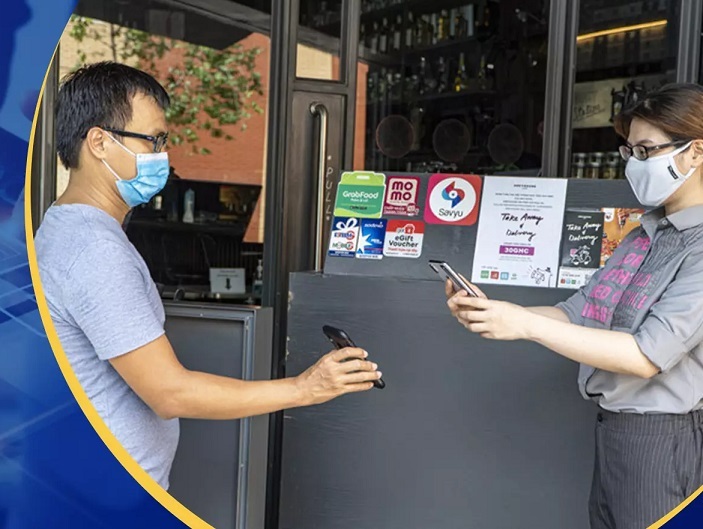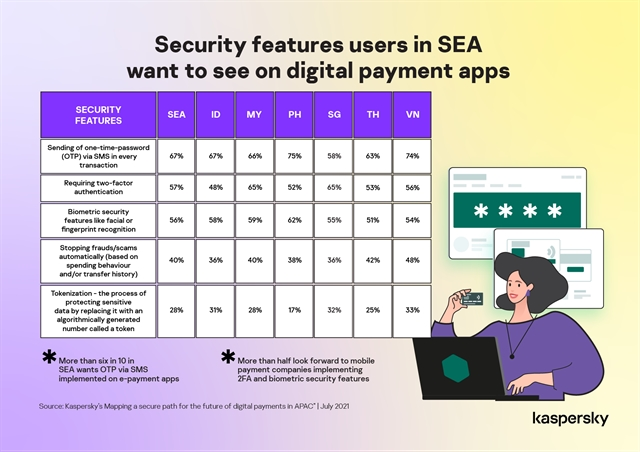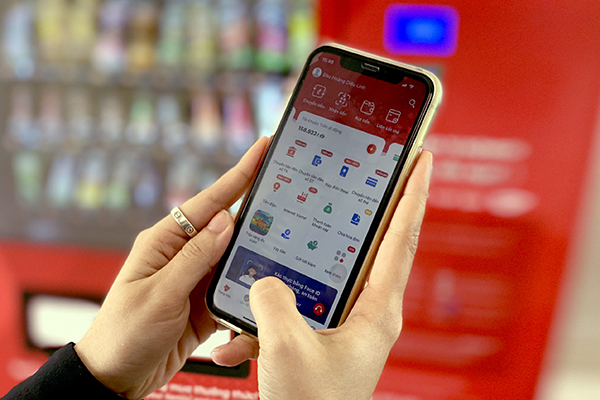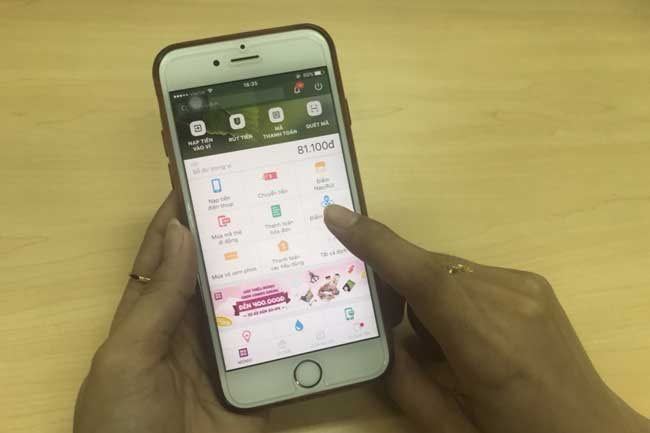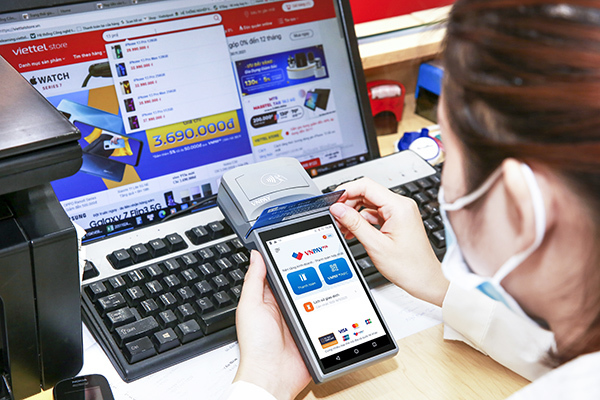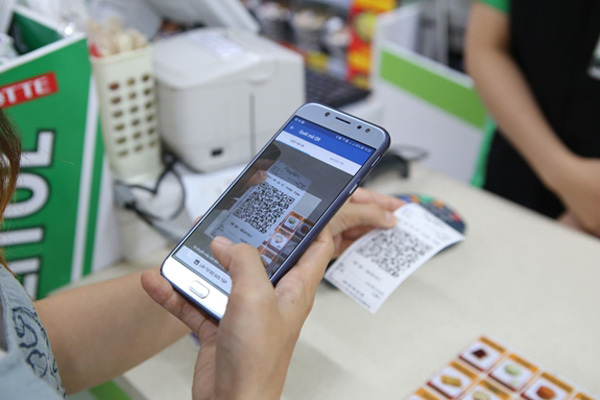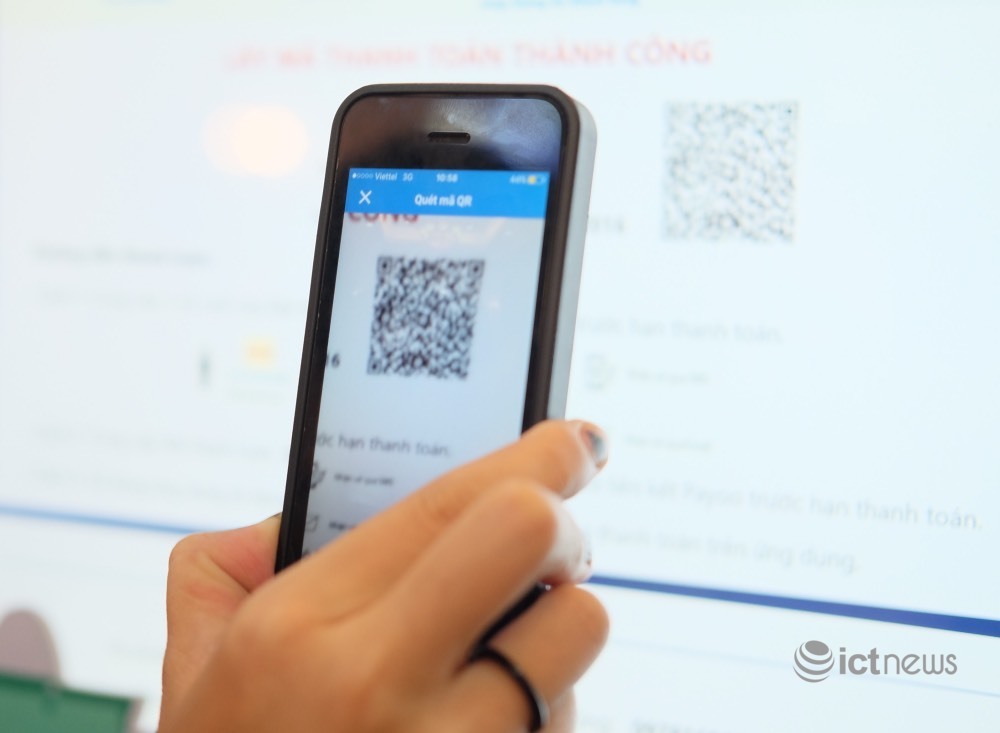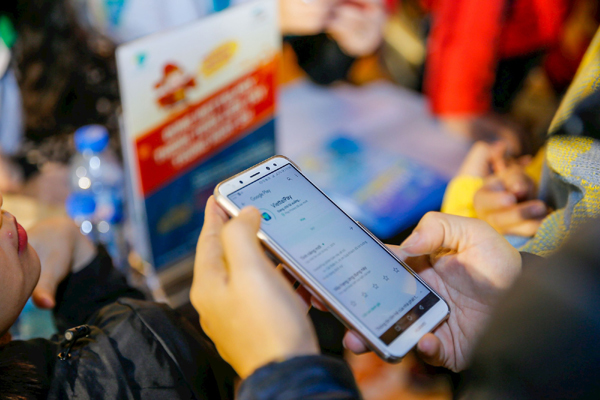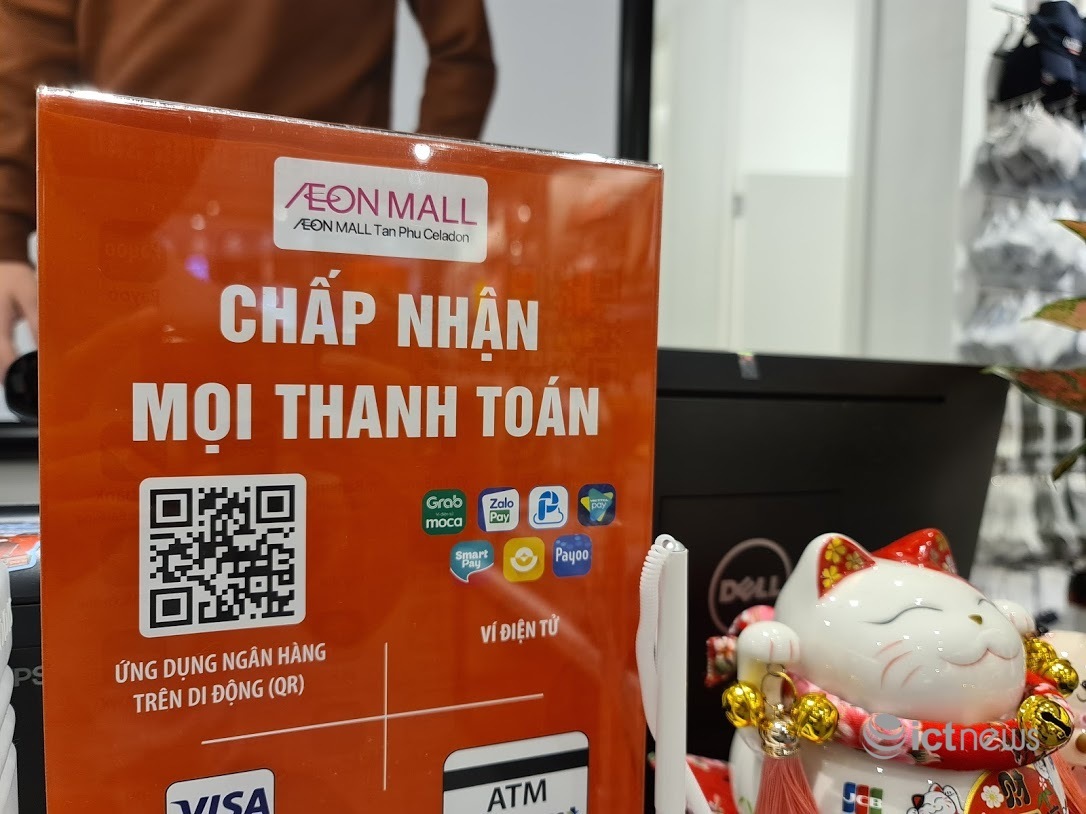- © Copyright of Vietnamnet Global.
- Tel: 024 3772 7988 Fax: (024) 37722734
- Email: [email protected]
cashless payment
Update news cashless payment
The beginnings of a smart-city model
Ho Chi Minh City, Hanoi, Da Nang, Nha Trang and Binh Duong are implementing administrative reforms to launch and speed up smart city projects to attract more foreign investors.
Contactless economy: unexpected momentum and the future at hand
It's been two years since the Covid-19 pandemic turned the world upside down. The usual daily life is restricted, but that was the impetus for the new normal such as "no contact" and "social distancing" to appear.
74% in VN want OTP for every e-payment transaction: Kaspersky study
More than three in five (67 per cent) users of digital banking and e-wallet apps in Southeast Asia prefer one-time-passwords by SMS for every transaction, a recent Kaspersky research has found.
Cashless society gets closer as Vietnam digital banking gathers pace
One major “side effect” of the COVID-19 pandemic, amidst the unprecedented toll that it has exacted, is that it has catalysed digital transformation across all sectors, particularly in financial services.
Revenue, number of users of e-wallets double
Over the past two years, the pandemic has had a strong impact on digital transformation in general and cashless payments in particular.
Mobile payment: new trend in Vietnam
Buyers nowadays only need to scan a QR code by their phones to pay for items, and shops have even stopped accepting cash payments.
Vietnam sees boom in e-wallet market
Vietnam records one of the highest e-payment growth rates in the world, about 35% per year.
Use of Fintech services rises 3.5 times in 4 years in Vietnam
In only four years, the rate of Vietnamese using services of Fintech companies has increased from 16% to 56%.
Vietnam aims to become a cashless country
Vietnam will continue to implement new technologies and policies in its bid to become a cashless country, said banking experts and policymakers in a conference on Friday discussing the current situation of cashless technology in the country.
Digital payments increase but cash payments are still popular in Vietnam
Data shows that the Covid-19 pandemic has strongly promoted non-traditional forms of spending, but the use of cash is still high.
Banking agents: caution will not create breakthrough
State Bank of Vietnam is drafting a decree on non-cash payments which will replace Decree 110/2014. One of the expected policies of the decree is on payment agents, or banking agents.
Increasing cashless payments and the need for better cybersecurity
Vietnam is marching towards becoming a cashless society with new methods of electronic payments being deployed widely, but security risks come hand in hand with new technologies and applications.
Cash payment habits change in Asia Pacific
Under the impact of the Covid-19 epidemic, the interest in new payment technologies is growing in the Asia-Pacific region.
E-wallet, QR Code favored by Vietnamese
Forms of digital payment have become more popular in Vietnam, particularly e-wallets and QR codes.
Schools in HCM City urged to go cashless
HCM City’s education and training sector plans to embrace electronic payments at the kindergarten, primary, secondary and high school education levels by 2022.
E-wallet firms battle for slice of cashless payment pie
E-wallets firms are battling for a piece of the cashless payment market amid rapid growth in the context of the COVID-19 pandemic.
HCM City hospitals switch increasingly to cashless payment
 The shift towards electronic payment is now an established trend with half of HCM City’s public hospitals embracing it, health authorities have said.
The shift towards electronic payment is now an established trend with half of HCM City’s public hospitals embracing it, health authorities have said.
HCM City seeks faster switch to cashless payment
Nguyen Anh Duc, general director of Saigon Co.op, said the rate of cashless payment at its system, including Co.opmart, Co.opXtra, Co.op Food, and Co.op Smile, has increased sharply since last year from 3-5 percent to nearly 21 percent now.
Vietnam credit growth slows to 2.13% in 6-month period
Credit demand in Vietnam is expected to stay low in the foreseeable future as the Covid-19 pandemic continues to be complicated globally, said a central banker.
Vietnamese Govt to keep pushing for cashless payment
Non-cash payments have increased sharply in recent time in Viet Nam, but more efforts are needed to increase their rate, experts said.

